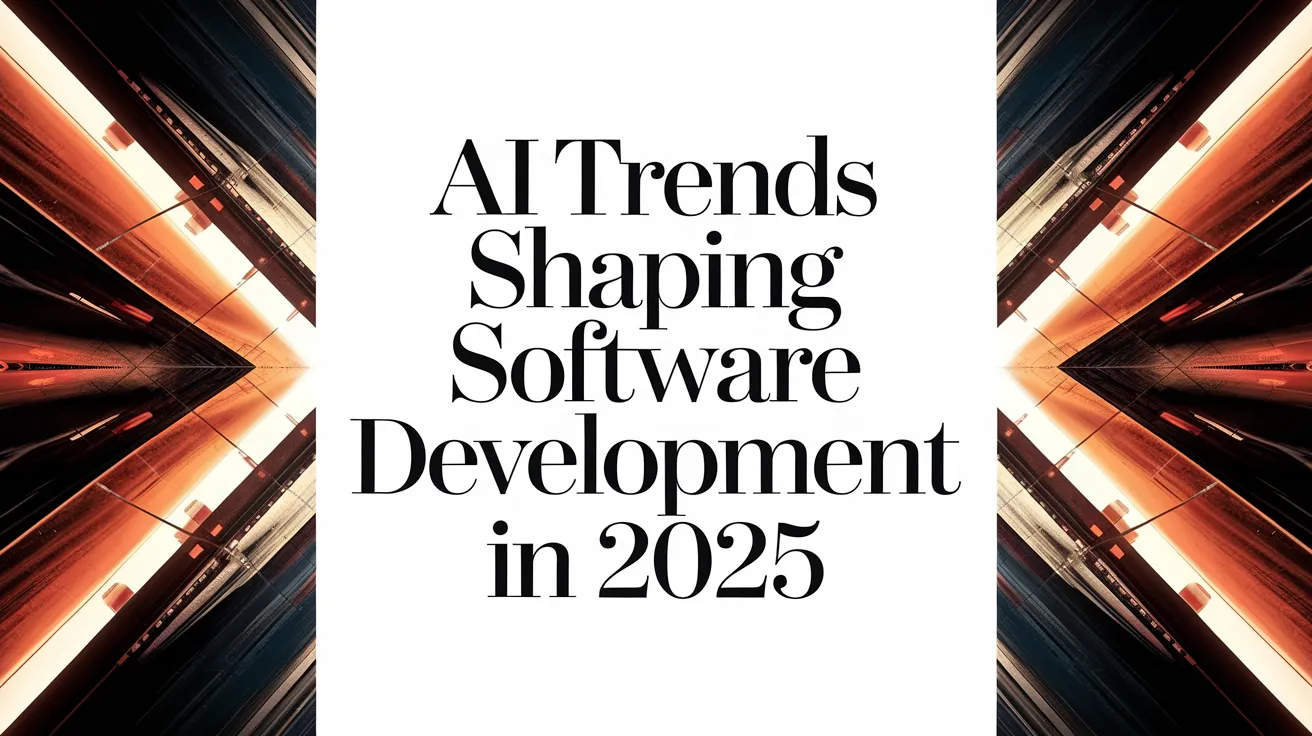AI Trends Shaping Software Development in 2025

The rapid adoption of artificial intelligence (AI) is fundamentally altering the software development ecosystem. As these capabilities advance, they are becoming more integrated into the software development lifecycle (SDLC). According to the latest GitLab DevSecOps survey, 78% of respondents worldwide are currently using or plan to use AI in their software development processes within the next two years, reflecting a notable increase from 64% in 2023.
Adaptive, Intelligent AI Agents Revolutionize Applications
The paradigm of application development is evolving, with AI and intelligent agents redefining user interfaces and the construction of applications. Natural language is expected to become the primary interface, offering an interactive and immersive experience driven by AI agents that perform tasks, provide guidance, and adapt to user interactions in real-time. This shift will create more personalized and responsive software applications, reshaping our relationship with technology.
Proactive AI Collaborators
AI assistants are maturing from reactive prompt-based tools to proactive collaborators that enhance the software development process. Positioned as central hubs for coding assistance, these intelligent agents can predict developers’ needs and offer real-time suggestions for optimizing application performance, security, and maintenance. Such advancements not only streamline the SDLC but also simplify the user interface, making development more accessible and efficient.
This evolution presents an opportunity for developers to focus on higher-level strategic tasks rather than mundane operations. By automating routine activities and supplying expert guidance, AI enables developers to immerse themselves in problem-solving, uphold code quality, and delve into innovative technologies, thus fueling a more productive and innovative environment.
Shifting Towards On-Premise, Customized AI Models
This year marks a significant pivot towards on-premise AI deployments as organizations increasingly turn to open-source models that are cost-effective and customizable. By opting to run tailored AI models in their own data centers, companies can achieve lower costs, faster processing, and enhanced ownership of AI solutions tailored to specific operational needs. Additionally, industries with stringent compliance requirements, like finance and government, are likely to deploy these models in isolated environments for improved data privacy, security, and performance.
AI’s Integral Role in Future Software Development
The intersection of AI and software development heralds a transformative era in how software is developed, delivered, and maintained. By leveraging these advanced technologies, organizations can enhance operational efficiency, gain competitive advantages, and provide innovative solutions that cater to dynamic customer needs.
However, successfully integrating AI into software development necessitates thoughtful planning, investment in skilled talent and infrastructure, and a commitment to ongoing adaptation. Organizations that effectively navigate this rapidly changing landscape will be well-positioned to prosper in the digital age.
Author: Emilio Salvador, Vice President, Strategy and Developer Relations at GitLab
